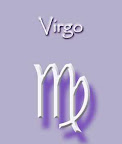I admit that Halloween aka Samhain is my most favorite time of year. Full of ghost and goblins the undead and my favorite: WITCHES... but the type of Witches we're going to indulge ourselves in today are not the cackling ole crones that live out in the woods and cast evil spells and live in the Devil's Lair (perfect example is RHEA OF THE COOS: Rhea was Hambry's resident witch in Stephen King's Dark Tower Series Wizard & Glass).
Nope, today we're going to take you on a journey of Modern Witches of the Pagan Faith (and before you scoff, yes its recognized legally just like Christian, Muslim, Buddist, etc.) Our Author will tap into this later but some of the Modern Witches call themselves Wiccan and they say they practice Wicca. I prefer not to really call myself anything and if I was forced to I'd say "Kitchen Witch".
I know that it can be confusing and some just can't wrap thier minds around Witches &/or Wiccans & Druids, etc being real people and living from the way the ancestors did back long long long ago...
The imagery of the old crone witch that is most prelavant during Halloween is actually a distorted image of the Midwives and Medicine Women in the days before of what we now would consider doctors. When the Priests and Ministers of Christianity were trying to convert those in the European countries they would depict the medicine women doing evil deeds and "laying with the devil" and that to go to these healers were actually putting thier very souls in the Devil's Hands. When the Burning Times really became prelavant even some of the village people who went for medical reasons where assumed to be "WITCHES" themselves and also burned. The village people would go to these Medicine Women for everything from a corn on thier toes to a broken heart (love spells/potions) to indigestion, etc.
I don't make my claim to fame by curing corns on toes or healing broken hearts, but I do make a pretty damn good apple pie! (haha get it? "Snow White & The Seven Dwarves"... just another example of the type we're not talking about today...) And I can hold my own pretty damn well in the kitchen!
I do hope that you enjoy the following article. And I hope I can help you understand a little more of something you might not have understood before. Look for the GREEN color for the ones I mostly relate to.
from "To Ride A Silver Broomstick"
by Silver RavenWolf
Alexandrian Tradition:
Founded in England during the 1960's. Alex Sanders referred to himself and the "King" of his witches. The rituals are said to be modified Gardenarian.
British Traditional Witch:
A mix of Celtic and Gardenarian beliefs. Most famous Organization at this time is the International Red Garters. British Traditionals move mostly from within the Farrar sect (the famous Witch husband and wife from England.) They too are fairly structured in their beliefs, and train through the degree process. Their covens are also co-ed.
Celtic Wicca:
The use of a Celtic/Druidic pantheon mixed with a little ritual Gardnerian, and heavily stressing the elements, nature and the Ancient Ones. They had a vast knowledge of and respect for the healing and magickal qualities of plants and stones, flowers, trees, elemental spirits, the little people, gnomes and fairies.
Caledonii Tradition:
Formally known as the Hecatine Tradition, this denomination of the Craft is Scottish in origin, and still preserves the unique festivals of the Scots.
Ceremonial Witchcraft:
Followers of this Tradition uses a great deal of ceremonial magick in their practices. Detailed rituals with a flavor of Egyptian magick are sometimes a favorite, or they may use the Qabbalistic magick.
Dianic Tradition:
First pinpointed by Margaret Murray in 1921 in "The Witch-Cult in Western Europe," this term appears to include a mixture of various traditions. However, their prime focus in recent years is on the Goddess, and has been pegged as the "feminist" movement of the Craft.
Eclectic Witch:
Look in any personals column in a Craft-orientated newsletter of journal and you will see this catch-all phrase. Basically, it indicates that the individual does not follow any particular Tradition, denomination, sect , or magickal practice. They learn and study from many magickal systems and apply to themselves what appears to work best.
Gardnerian Tradition:
Organized by Gerald Gardner in England in the 1950's. Just why is this fellow so darned important? Gerald was one of the few people so determined that the Old Religion should not die that he took the risk of publicizing it through the media. Under all the hype, I truly believe he understood that the young needed the Craft as much as the Craft needed a new generation to survive.
Hereditary Witch:
One who can trace the Craft through their family tree and who has been taught the Old Religion by a relative who was living at the same time. Channeling doesn't count. How far one has to go back on the family tree to meet the conditions of the first part of this definition is debatable. Family Trades occasionally adopt individuals into their dynasty. This decision is never a light one, and usually stems from the lack of offspring to carry on the line, or the high regard they hold for the person in question. The ceremony is intricate and important. After all, it is not every day you can pick your relatives! It is much like the marriage of an individual into a family.
Kitchen Witch:
You will hear this term every once in a while. Basically, this type is one who practices by hearth and home, dealing with the practical side of religion, magick the earth and the elements. There are some who groan loudly at this type of terminology, viewing it as degrading or simply inappropriate. Just remember that the Old Religion started somewhere, and most likely the kitchen was the hub of many charms, spells, healings, and celebrations. After all, where does everyone congregate during the holidays? Grandma's kitchen has always produced magickal memories for humanity: visions of mother making that something special for a sick child still holds true today for many of us.
Pictish Witchcraft:
Scottish Witchcraft that attunes itself to all aspects of nature; animal, vegetable, and mineral. It is a solitary form of the Craft and mainly magical in nature with little religion.
Pow-Wow:
Indigenous to South Central Pennsylvania. This is a system, not a religion, based on 400-year-old Elite German magick. Pow-Wow has deteriorated to a great degree into simple faith healing. Although Pow-Wow finds its roots in German Witchcraft, few practicing Pow-Wows today in Pennsylvania follow the Craft or even know the nature of its true birth.
Satanic Witch:
One cannot be a satanic Witch because Witches do not believe in satan.
Seax-Wicca:
Founded by Raymond Buckland in 1973. Although of Saxon basis, it was authored by Raymond himself without breaking his original Gardnerian oath. Raymond Buckland's contribution to the Craft is a significant one. Not only did he develop a Tradition that is more than acceptable to many individuals, he also has written a large volume of textbooks on different magickal aspects and practices of the Craft, thereby enhancing many lives in a positive direction.
Solitary Witch:
One who practices alone, regardless of Tradition, denomination, or sect. Solitaries come in various forms. Some were at one time initiated into a coven and eventually chose to extricate themselves from that environment and continue practicing a particular Tradition or sect by themselves. A solitary can also be an individual who has no desire to practice with or learn from a coven structure, but still may adhere to a specific Tradition or sect through the teachings of another. For example, a member of a Hereditary Family may choose to teach a close friend the art and science of the Craft, but choose not to adopt them as a Family member for any number of reasons. And finally, a solitary Witch can be a person who has decided to tough it out on their own, learning from books, networking, and fellow Witches of different Traditions. These people have the ability to pick themselves up and brush themselves off, and live to try again. More and more individuals are selecting the solitary path rather than that of group interaction. Another name for a solitary Witch is "Natural Witch." You may hear this word from time to time as well.
Strega Witches:
Follows a tradition seated in Italy that began around 1353 with a woman called Aradia. Of all the traditional Witches, this group appears to be the smallest number in the U.S.: however, their teachings are beautiful and should not be missed.
Teutonic Witch:
From ancient time the Teutons have been recognized as a group of people who speak the Germanic group of languages. Culturally, this included the English, Dutch, Icelandic, Danish, Norwegian and Swedish peoples. This is also known as the Nordic Tradition.
The Wiccan Witch:
So far in this rundown of Witches you may have noticed that I very rarely use the terminology "Wiccan," and that many of the definitions – other than individuals' names and dates- are derived from my own understanding of each term. I have listened to and read many arguments for and against the use of the words "Wiccan" and "Witchcraft." I will tell you quite honestly that I have used both words when discussing my faith, depending on the recipients of my conversation. There are those that feel the term "Witch" is an egotistical one. Maybe so. Different words mean different things to a variety of people. Each individual must draw their own conclusion as to the terms they use to describe themselves. I personally like the word "Witch" very much. To me, it means mystery, healing, power, special, different, balance, and history. It means knowledge, secrets, the earth, and a bond with both the male and female sides of myself. The word "Wiccan" does not give me those feelings. It projects a different set of associations- weaving, church, New Earth, wicker furniture and the movie The Wicker Man. It also means "front", a way to bring the public into accepting our belief system for what it actually is, not what their preconceived ideas of a word dictates to them. Both words have their strong and weak points. It is simply how you view them that makes the difference. Neither definition is better than the other; you must choose for yourself.
Remember: I didn't write this article and the views of the author are not necessarily the views of myself or the views of my readers. When responding to this please do so in kindness and with an open mind. Afterall: Karma is a Bitch.
Example: in Kitchen Witch she states "the Old Religion started somewhere, and most likely the kitchen was the hub of many charms, spells, healings, and celebrations. After all, where does everyone congregate during the holidays?" for me, there isn't a "most likely" to it. I'm pretty darn sure that the Hearths & Kitchens were the start points for anything related to what is NOW commonly called "The Craft" & "Wicca"...altho I'm sure back then they really didn't have a name for it! It was just part of life!!!





I guess I would be considered an eclectic witch.
ReplyDeleteWow cool
ReplyDeleteWow love it so much more
ReplyDeleteSo do love it dat we can do both Wicca & witchcraft@ da same tyme & have our own book of shadows 2 sweet
ReplyDeleteSweet our sign iz a a very all powerful sign coolness
ReplyDelete